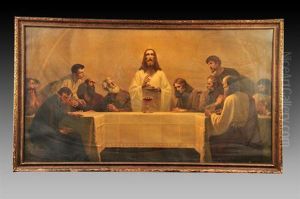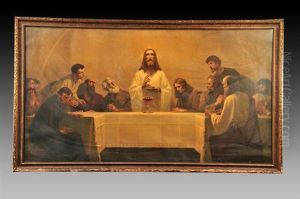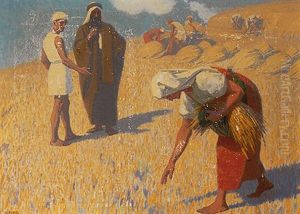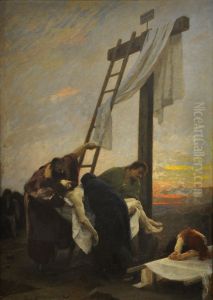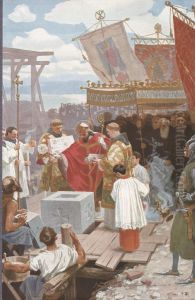Gebhard Fugel Paintings
Gebhard Fugel was a German painter known primarily for his religious-themed works. Born on January 1, 1863, in Obernzell on the Danube in Bavaria, Fugel showed an early interest in art and attended the School of Applied Arts in Munich. He further honed his skills at the Munich Academy, where he was influenced by the historical and ecclesiastical art that characterized the curriculum during the late 19th century.
Fugel's religious works were often large-scale and intended for public and ecclesiastical buildings. His style, while grounded in the academic tradition, also reflected the changing tastes of the period, incorporating elements of Symbolism and Art Nouveau. He was deeply interested in biblical scenes and narratives, which he depicted with a focus on realism and a keen attention to detail, particularly in the portrayal of clothing and settings.
Throughout his career, Fugel received numerous commissions for churches and public spaces. One of his most significant works is a cycle of paintings depicting scenes from the life of Christ for the Church of St. Magnus in Füssen, Bavaria. His religious paintings were widely reproduced, particularly in the early 20th century, helping to disseminate his interpretations of biblical stories to a broader audience.
In addition to his religious art, Fugel also created genre paintings, landscapes, and portraits. However, his lasting legacy remains tied to his contributions to ecclesiastical art. His works continue to be appreciated for their spiritual depth and artistic quality.
Gebhard Fugel passed away on March 12, 1939, in Munich. His art remains a testament to the religious and artistic sentiments of his time, and his paintings can still be found in churches and collections in Germany and beyond.

